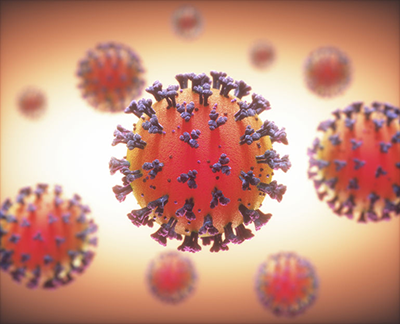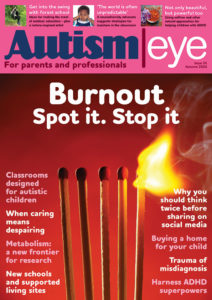People with learning disabilities and autism are being denied crucial coronavirus tests.
Government rules say anyone over 65 showing symptoms can get a test.

Deadly: an illustration of coronavirus. People with learning disabilities and autism in care settings are vulnerable to it, but are denied coronavirus tests
Others showing symptoms can also be tested, including key workers and those who can’t work from home.
Not entitled to coronavirus tests
But people with learning disabilities don’t qualify for coronavirus tests. That applies even if they show symptoms.
Meanwhile, figures from the Care Quality Commission (CQC) highlight the vulnerability of people with learning disabilities and autism in care settings.
The figures show there were 175 per cent more deaths in care homes between 10 April and 8 May this year, compared to the same period last year.
In comparison, a BBC report suggests there was a lower 75 per cent increase in deaths in the total population.
The figures show that those living in care settings, such as people with learning disabilities, were well over two times more likely to die.
Blanket use of Do Not Attempt Resuscitation orders
Also, charity Learning Disability England (LDE) has reported that some doctors made Do Not Attempt Resuscitation (DNAR) orders for people with learning disabilities during the pandemic.
The charity said the decisions had been made on groups of people or individuals without consulting them, their loved ones or the people who support them. This was not in accordance with guidance and best practice, and in some cases could be illegal.
In a survey, 13 care organisations told LDE they had seen an increase in the blanket use of DNARs.
Demand for accurate picture of Covid-19 deaths
Edel Harris is chief executive of Mencap.
She has demanded a “timely, full and accurate picture of Covid-19-related deaths of people with a learning disability across all settings”.
In a statement, a spokesperson for the Department of Health and Social Care (DHSC) stressed it was working hard to “protect the most vulnerable”.
The DHSC and the CQC have stressed that the 175 per cent increase in deaths will involve more than just people with learning disabilities and autism.
Groups such as the elderly will share these care settings.
Related:
- Fightback against virus law care cuts
- Disabled launch legal fight to buy food
- Keep seeking medical help, doctor urges
- Families fight virus clampdown
- We can’t get food we need, say parents
- Councils ‘free to abandon disabled’
- Coronavirus may decimate services
Published: 15 May 2020
















